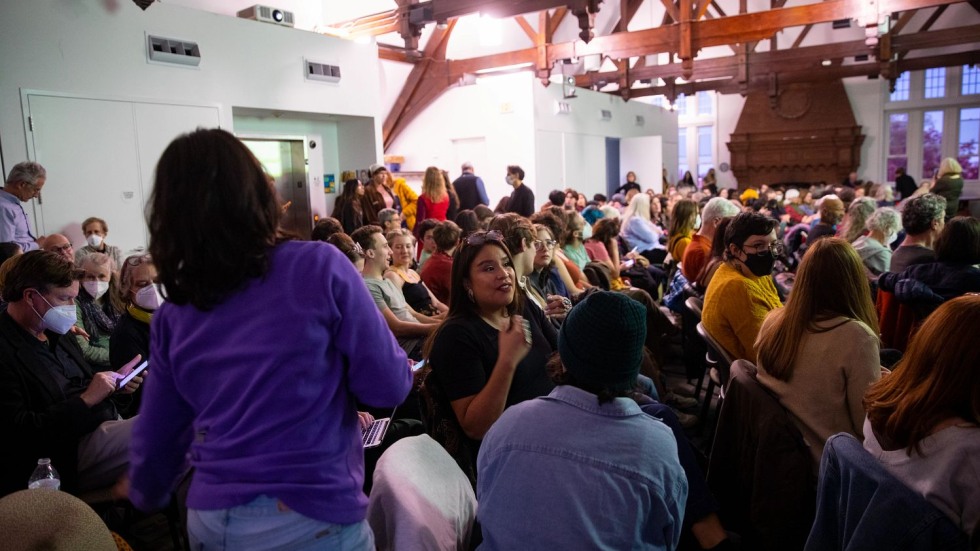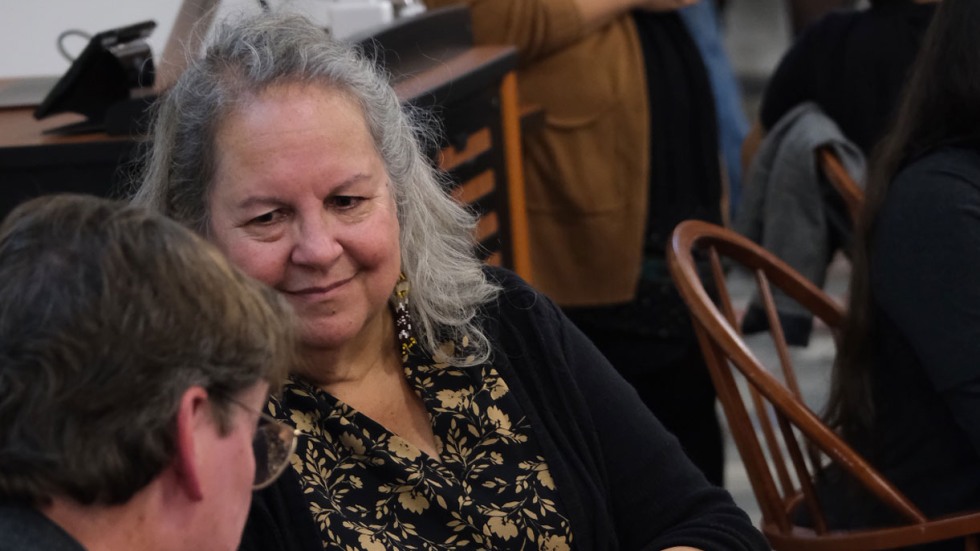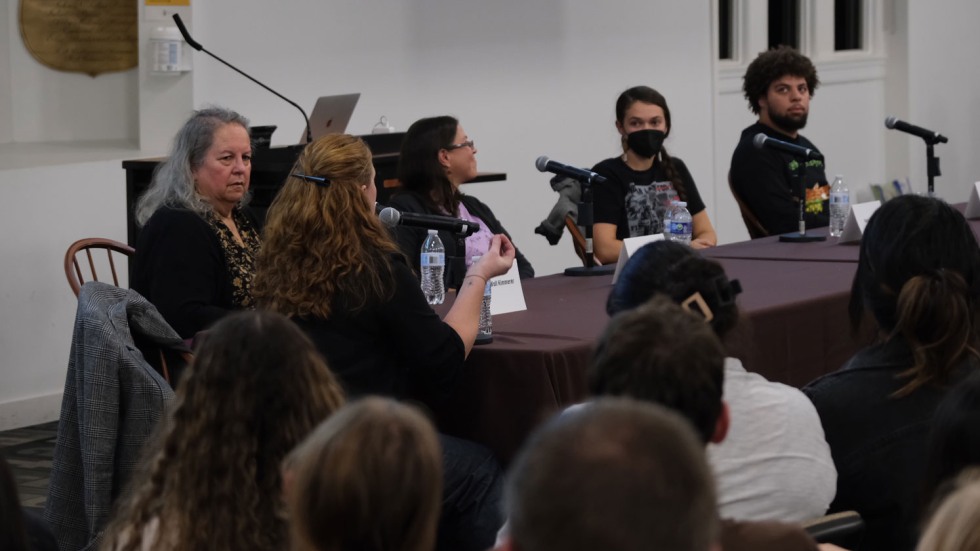PROVIDENCE, R.I. [Brown University] — If there’s one thing Robin Wall Kimmerer wants people to realize about the fight against climate change, it’s that love is more powerful than fear.
“One of the things that concerns me about a lot of environmental messaging is that it’s so fear-based,” the Indigenous botanist and educator told a rapt crowd at Brown University on Friday, Nov. 4. “We don’t always act upon it, but we know how to love each other, and be grateful for each other, and be in reciprocity with each other. We can extend those human gifts to our non-human relatives. I think we’re in this place [of rapid climate change] because we haven’t loved the land enough. What needs to change is a greater expanse of how we channel that love.”
Kimmerer, the bestselling author of the essay collection “Braiding Sweetgrass: Indigenous Wisdom, Scientific Knowledge and the Teachings of Plants,” spoke at Brown as part of a panel discussion featuring Indigenous land-based practitioners. Joining her on the panel, co-hosted by Brown’s Haffenreffer Museum of Anthropology and Native American and Indigenous Studies Initiative, were three Indigenous experts from across New England: Keely Curliss, a Nipmuc leader in the Indigenous farming movement; Elizabeth James-Perry, an Aquinnah Wampanoag artist focused on Northeastern woodland culture; and Rashad Young, a Mashantucket Pequot performer, maker, researcher and teacher. The discussion was moderated by Bathsheba Demuth, an associate professor of history and environment and society at Brown.
The panel was just one element of Kimmerer’s three-day residency at Brown, which included discussions on community-engaged research with University scholars of Native American history and culture, a meeting with students and faculty focused on decolonizing science and technology, time to connect with Indigenous students and employees, and a lecture titled “Restoration and Reciprocity: Healing Relationships with the Natural World.” Like that Nov. 3 lecture, the panel discussion the next night drew more than 200 people from Brown and local communities, packing the top floor of Pembroke Hall.
Throughout the conversation, one message rang loud and clear: The fate of the land is in everyone’s hands, and with dozens of generations of Indigenous wisdom on our side, that doesn’t have to be a negative thing: “In a time of climate change, that’s one of the most important things we can do… recognize our agency. This does not have to happen unless we’re complicit with it.”


